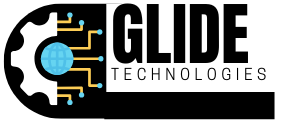Table of Contents
ToggleIn a world where software can magically appear at the click of a button, SaaS companies are the wizards behind the curtain. Software as a Service, or SaaS, has transformed how businesses operate, offering everything from accounting tools to project management platforms, all without the need for pesky installations or hefty upfront costs. Imagine having a powerful software suite that’s always up-to-date and accessible from anywhere—sounds like a dream, right?
These companies have mastered the art of delivering services over the internet, making life easier for users and businesses alike. Forget about complicated downloads and constant updates; with SaaS, it’s all about convenience and flexibility. So, if you’re curious about how these tech-savvy firms are changing the game, buckle up. It’s time to dive into the fascinating world of SaaS and discover why it’s the future of software.
Overview Of SaaS Companies
SaaS companies deliver software solutions via the internet. This model eliminates the need for users to install and maintain applications on local devices. Customers access software hosted on remote servers through a subscription model. Benefits include reduced costs, as upfront expenses associated with purchasing licenses become less significant.
Flexibility characterizes SaaS offerings. Organizations can scale usage according to their needs, adjusting the number of users and features based on evolving requirements. Automatic updates ensure users always benefit from the latest features without manual intervention. They gain access anytime, anywhere, using only an internet connection.
Prominent examples include companies like Salesforce, Google Workspace, and Dropbox. Salesforce provides customer relationship management tools that streamline sales processes. Google Workspace delivers collaborative office applications that enhance productivity and communication. Dropbox offers file storage and sharing services that simplify document management.
Security also plays a crucial role in SaaS solutions. Providers implement robust measures to protect user data, often offering better security than traditional on-premise solutions. They stay compliant with industry regulations, maintaining rigorous standards to safeguard sensitive information.
SaaS companies impact various industries, including healthcare, finance, and education. Each sector benefits from specialized applications that improve efficiency and collaboration. Moreover, the continuous evolution of technology drives innovation in the SaaS space. As artificial intelligence and machine learning become integrated, smarter solutions will likely emerge, further transforming business operations.
Key Features Of SaaS
SaaS offers distinct features that enhance user experience and empower businesses.
Accessibility And Convenience
Accessing software from any location signifies a major advantage of SaaS solutions. Users enjoy seamless availability via the internet, eliminating the need for complex installations. Multiple devices can connect to the software, fostering flexibility and collaboration. Automatic updates also play a crucial role, ensuring customers always utilize the latest features and security enhancements. This approach minimizes downtime often associated with traditional software updates, keeping operations smooth and efficient. As a result, businesses can focus on core activities rather than maintenance tasks.
Cost-Effectiveness
SaaS models reduce the financial burden on companies significantly. Subscription-based pricing allows organizations to pay only for what they use, avoiding hefty upfront costs associated with traditional software purchases. Scaling operations becomes manageable, as businesses can adjust their subscriptions according to changing needs. This flexibility supports growth without necessitating large investments in hardware or infrastructure. By outsourcing maintenance and updates to providers, companies can reallocate resources towards strategic initiatives. Overall, SaaS contributes to more efficient budget management and supports operational agility.
Popular SaaS Companies
SaaS companies span various sectors, providing essential tools for businesses and individuals. Their offerings enhance productivity, collaboration, and overall efficiency.
Leaders In The Industry
Salesforce stands tall as a leader, specializing in customer relationship management (CRM) solutions. Google Workspace enables teams to collaborate seamlessly through its suite of productivity tools. Microsoft 365 offers a comprehensive cloud-based alternative for businesses looking to enhance productivity with familiar applications. Adobe Creative Cloud provides creative professionals with a robust set of design tools, while Shopify empowers e-commerce businesses with user-friendly online platforms. Each player contributes significantly to the SaaS landscape, shaping how organizations leverage technology.
Emerging Players
Noteworthy emerging players are gaining traction in the SaaS market. Monday.com offers a flexible project management platform that adapts to various team needs. Notion captures attention with its all-in-one workspace to streamline collaboration and documentation. Airtable combines the simplicity of spreadsheets with the sophistication of databases, enabling users to manage diverse projects efficiently. FreshBooks provides accessible financial management for small businesses, focusing on invoicing and expenses. These companies illustrate the expanding boundaries and innovative potential within the SaaS space, reshaping how businesses manage operations.
Benefits Of Using SaaS
SaaS offers several distinct advantages that significantly enhance business operations. Its model provides flexibility and efficiency.
Scalability
Scalability stands out as a primary benefit of SaaS. Businesses can easily adjust their usage as needs change. Organizations can scale up during peak times to accommodate higher workloads or scale down during quieter periods, ensuring cost-effectiveness. Efficiency of resources improves since subscriptions can be modified without significant financial or operational impact. SaaS solutions cater to small startups and large enterprises, making growth manageable regardless of company size. This adaptability supports the dynamic nature of modern businesses.
Automatic Updates
Automatic updates enhance the SaaS experience by ensuring users always access the latest features and security protocols. Companies benefit from seamless implementations of new tools without downtime or manual installations. Providers handle all maintenance, allowing teams to focus on core activities. User devices stay equipped with the most current software versions, reducing vulnerabilities. Frequent updates also bring improvements based on user feedback, adapting products to meet evolving market demands. This continuous enhancement keeps businesses competitive and aligned with the latest technological advances.
Challenges Of SaaS
SaaS companies face specific challenges that impact their operations and customer satisfaction.
Security Concerns
Security remains a top challenge for SaaS providers. Data breaches can lead to significant financial losses and damage to reputation. Users increasingly express concerns about data privacy and compliance with regulations, such as GDPR and HIPAA. Providers must implement advanced encryption, secure user authentication, and ongoing security audits to protect sensitive information. Regular updates to security protocols ensure that vulnerabilities are minimized. Ultimately, the trust of customers hinges on the effectiveness of these security measures.
Downtime Risks
Downtime poses another major risk in the SaaS landscape. System outages can disrupt business operations and lead to productivity losses. Customers depend on uninterrupted access to software tools, making reliability crucial. Frequent service disruptions can result in user dissatisfaction and loss of revenue for providers. Implementing robust infrastructure and failover systems can mitigate these risks. Additionally, effective disaster recovery plans help ensure continuity in service availability, thereby maintaining customer confidence.
SaaS companies are reshaping the way businesses operate by offering flexible and accessible software solutions. With a focus on user experience and cost-effectiveness, they enable organizations to adapt quickly to changing demands. The integration of advanced technologies like AI and machine learning promises to drive further innovation in this space.
While challenges such as security and downtime persist, the commitment to robust infrastructure and user protection remains strong. As SaaS continues to evolve, it will undoubtedly play a critical role in enhancing productivity and collaboration across industries. Embracing this model can empower businesses to thrive in an increasingly digital landscape.



